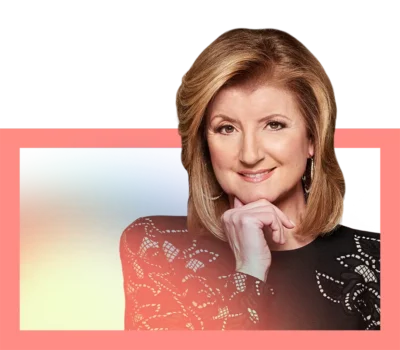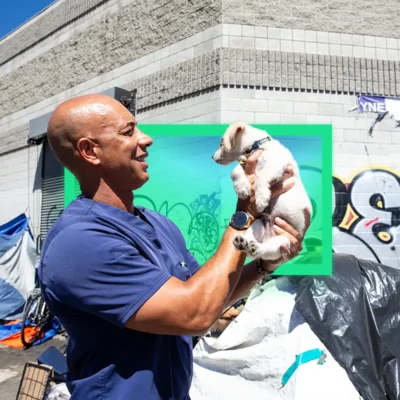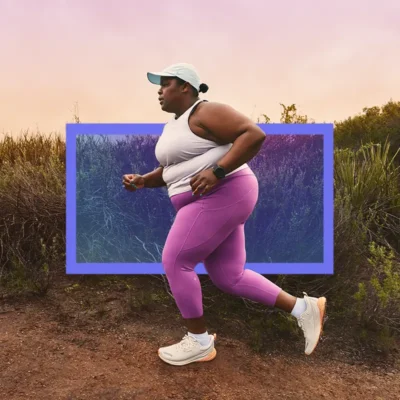Life and love and the moment
A glossy picture on the cover of a magazine. That’s all it takes for a teenage Arianna Huffington to decide she’s going to leave her family and home – and the activity and warmth of her mom’s kitchen table – to start something new. Without speaking the language, or even knowing how to get there, Arianna decides she’s going to start a new life in a new place, propelled forward by her mom’s wise sense that life isn’t about winning or losing, it’s about having the adventure.
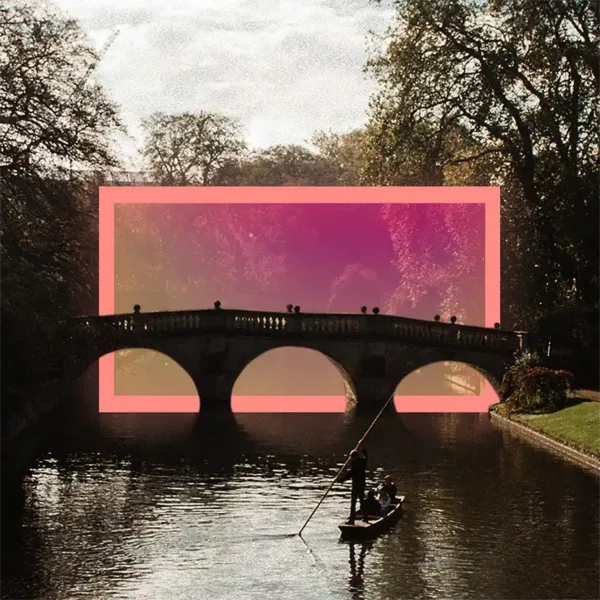
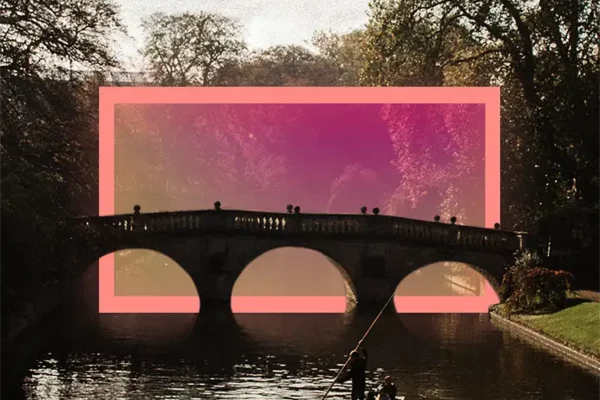
Table of Contents:
Transcript:
Life and love and the moment
ARIANNA HUFFINGTON: That’s what kept me going – her conviction that failure doesn’t matter made it easier for me to succeed. There was no Plan B lurking on the edge of my consciousness, distracting me, calling to me. Because life and love and the moment were Plan A and we’d always have those, and so why would you ever need anything else?
ROHAN GUNATILLAKE: Arianna Huffington grew up in an unassuming one-bedroom apartment above the bustling streets of Athens, Greece. What she lacked in material things, she regained many times over in the rich home her mother created for her and her sister. There, at their kitchen table, Arianna’s spirit of adventure was born. And it was there that her mother taught her the universal wisdom of embracing life’s journey without being attached to the outcome.
In this series, we blend immersive, first-person stories with mindfulness prompts to help you recharge at any moment of the day. I’m Rohan, and I’ll be your guide for Meditative Story.
The body relaxed. The body breathing. Your senses open. Your mind open. Meeting the world.
HUFFINGTON: Every time I go back to Athens, I return to the tiny street where I grew up. It was just the three of us, my mother, my little sister Agapi, and me. My parents had separated, so we all shared this cramped one-bedroom apartment across the street from a fire station in the middle of the city. But my mother made it seem grand and full of life. And she’d do this through cooking – constant, non-stop cooking.
For my mother, food was life and life was food. If you were eating, it meant you were alive. Food was a kind of love offering, and she was a high priestess. Her ceremonial robes were a house dress and a food-smeared apron.
Our lives in Athens revolved around the kitchen table. Agapi and I would hurry home from school and even before we’d throw open the door, we’d be coaxed down the hallway with the smells of dill, mint, sage, rosemary, thyme, basil, and fennel.
These smells were her emissaries. She sent them to greet us even before she could emerge from the kitchen and give us a hug. With her cooking, she created a micro-climate of her own that paid no mind to the outside world. Then we’d throw down our school bags and descend on the kitchen table.
We’d sit at that table for hours: eating, talking, doing homework, talking over problems from school, problems from life – and eating some more. And then finally my mother would bring out the thing we loved the most: walnuts and honey. That’s how we’d end each meal, drunk on Greek honey.
GUNATILLAKE: From your own childhood, is there a dish or type of food that particularly evokes good memories for you? Take a moment to bring it to mind. And feel free to smile. Can you picture the food and the people or the place you most associate with it?
HUFFINGTON: I remember one particular day, I see a magazine on my way home from school. The cover is a photo of Cambridge University in England. Now, I’d never been to England. In fact, I’d never been anywhere outside of Greece. But that photo catches my eye. It stops me.
I get home, fly through the doorway to be greeted by the aroma of my favorite dish, artichokes in a creamy dill sauce. There were other assorted dishes there, too – spanakopita, hummus, eggplant – those were always around. They got changed regularly, but you never really saw it, they were just always there. So I run in, throw my bag down, open the magazine, and spread it out on the table.
“Mommy, look at this.”
“What is it, honey?” she says.
“It’s Cambridge,” I say. “It’s in England.”
“I know that,” my mother replies. “But why are you showing it to me?”
“Because I want to go there.”
“You mean you want to visit there?”
“No, I want to go to university there. I love it, and that’s where I want to go to school.”
I’m probably more surprised than my mother to hear this come out of my mouth. The photo had touched something deep inside me, something I hadn’t really articulated to myself at the time. It was the desire to open up new possibilities, and above all, to learn, learn, learn.
I loved school and I loved learning – about languages, about history, about other places. Learning, for me, was what food was for my mother. To learn is to be alive. And Cambridge seemed like the center of the learning universe.
By the time I make my proclamation, I can’t imagine wanting to be anywhere else in the world. Even if it means leaving this love-filled room, and the very table I’d put the magazine down on.
So I look up at my mother, not knowing what she’s going to say. She’d never been anything but supportive, but what I’d just said was ridiculous. Teenagers want a lot of things they can’t have. But instead my mother says: “That’s amazing. It looks beautiful. Let’s see how we can get you there.”
I’m stunned. Not because of her positive reaction – I should never have expected anything else – but because her taking the idea seriously stopped my giddy reverie and brought me back down to earth. Back to our tiny apartment in Athens.
Now, there was one problem with going to university in England – I didn’t speak English.
“No problem,” my mother says. “I’m sure you can learn English quickly.”
“Really?” I say. I’m amazed not just by her confidence in my learning English, but by her confidence in the whole thing, the whole crazy idea.
“Sure. Maybe we can go visit, just to see what it’s like. I’ll see if I can get us some cheap tickets.”
It’s probably a good thing that neither of us had any clue just how incredibly difficult it was going to be. That’s what her wall of unconditional love and support and optimism and artichokes and spanakopita did – it created an insulating barrier between me and the harsh outside world. A little hothouse where my naivete could slowly metamorphosize into something resembling confidence.
Every day for the next several weeks, my mother did research. She never went to college, but she had street smarts. She never doubted that she could figure something out and make it happen through sheer determination. At every meal, she would give us updates on what she’d found out:
“So, in order for you to get into Cambridge, you first have to take something called the ‘general certificates of education.’ Then you have to take a special entrance exam, and then a verbal exam.”
“Wow,” I remember saying. “That seems like a lot. How are we ever going to do all that?”
“Well, I also found out you can take your general certificates of education through the British Council.”
“But I still don’t speak English,” I say.
“I also found this intensive class where you can start learning English,” she says.
There was really nothing I could say. She’d figured it all out. She even looked into how to apply for a scholarship.
Sure it was all daunting, and there was a lot of red tape and forms to fill out. But my mother could turn anything into a big adventure. My first step into the world outside of Greece was no exception.
But the most important thing my mother did for me wasn’t all the research and the planning – and it wasn’t even the confidence she had in me. It was the sense that even if I didn’t get in, that that would be okay, too. She didn’t get wrapped up in any particular outcome. We’d just be on to the next adventure.
That’s what kept me going – her conviction that failure doesn’t matter made it easier for me to succeed. There was no Plan B lurking on the edge of my consciousness, distracting me, calling to me. Because life and love and the moment were Plan A and we’d always have those, and so why would you ever need anything else?
So then it came time to visit Cambridge. My mother got us both tickets – of course she wheedled some cheap seats somehow. And I remember those seats because they didn’t recline at all. I’d never flown before, but it was fine, because, who knows, maybe Cambridge required extra-rigid posture to keep our minds properly attuned.
From the airport, we went straight to London. Of course, it was pouring rain. From there, we took the train to go to Cambridge. It continued to pour all the way. To the locals it was probably a gray, dreary day, but to me it seemed lush and sultry and green.
GUNATILLAKE: Can you picture the scene? A young Arianna seeing through the greyness of the English weather, her mind full of wonder and delight as she explores this famous old university with its striking architecture and inviting lawns.
HUFFINGTON: And then finally we were there. It was hard to believe. In most cases, as I’ve learned, a place rarely lives up to what it looks like in a travel brochure. So even on this wet, gray day, it was so much more vivid than I’d imagined. Building after building. There were students all over the place. Cambridge students who spoke perfect English. It was thrilling, but also intimidating – which my mother sensed.
“Well, here we are,” she says, as if we’d just arrived at our local grocery store. “Let’s go.”
The day itself was a bit of a blur. Even though I wanted to major in economics, we didn’t go visit the economics department. Nor did we go to the admissions office, which might have been the obvious thing to do. We didn’t even talk to anybody. We just walked around Cambridge. All day. Two Greek women who barely spoke English. Like spies doing reconnaissance.
But I think what we were really doing was just walking around the place until it felt natural for me to be there. It was a kind of in-person visualization: I’m walking around just like the real students are. In the same buildings. Nothing bad is happening. Nobody is reacting. If I got in, this is what I’d be doing. Maybe it really is possible.
GUNATILLAKE: How does the idea of an in-person visualization sound to you? Arianna explored what it would be like to be her future self by walking around Cambridge as if she were a student there, not a visitor. Are there any experiences for you that you would want to become real? What would your in-person visualization look like?
HUFFINGTON: And the more we walked, the more I loved it. I thought it was gorgeous, the colleges, the libraries, the river. By the end of the day it felt oddly familiar and at the same time ancient. It all reeked of history – a history I ached to be a part of. It was overwhelming, the sort of place that could take over your life.
Then we took the train back to London, went straight to the airport, and took the flight back to Athens. Our seats reclined this time. Did they know I’d been to Cambridge? Reclining seats seemed like something that would be normal for Cambridge students. Maybe it was a cosmic message of some kind.
On the way back, we hatched the final part of our plan, or at least my mother did. The plan was that I would come back to London after taking my General Certificate of Education to prepare for my entrance exam and continue to study English, around people who actually spoke English.
And after all that was done and the entrance exams were taken, there wasn’t much left to do but wait. But I wasn’t riddled with anxiety. And that was because of my mother. Life was still going on, and would go on, one way or another. We weren’t waiting for life to begin, this was life.
And then the day came, a telegram arrived. It’s waiting for me when I get home from school. My mother had put it on the table and motioned to it nonchalantly. I tear it open. “Accepted” and granted an exhibition, which is a form of scholarship. I can’t believe it. It’s just a piece of paper, but it seems more unreal than our actual visit had been.
My mother smiles and then hugs me. But she isn’t jumping up and down, as I am inside. Just as she wouldn’t love me any less if I’d gotten rejected, she also couldn’t love me more just because I’d gotten accepted.
That’s what allowed me to reach what really should have been an unattainable goal. It wasn’t a journey filled with anxiety and fear. It was an adventure. One always served, like your favorite dish, with unconditional love.
Rohan’s closing meditation
GUNATILLAKE: We’ve reached the end of Arianna’s story. Of all the themes in Arianna’s story, the one that stands out the most – for me – is that of adventure. With her sudden calling to study at Cambridge, she embarks on a series of challenges, all of which she overcomes to finally win her prize. And by loving the adventure – and being loved through the adventure – she’s able to complete her journey without anxiety or fear.
I often think about my own meditation practice, and meditation in general as an adventure or a journey. However long you’ve been practicing, there are always ups and downs: times of clarity and even exhilaration, often shortly followed by times of wondering why you’re even bothering to do it in the first place – and back again.
But what keeps me going is the process itself, for whatever results come about in the long-term, there’s an intrinsic delight and no small amount of wisdom that comes from just doing the practice and sticking with it. And the same applies for a single meditation session as it does for a whole lifetime of practice. Just being on an adventure can be reward enough.
So let’s go on one.
However your body is right now, this is the vessel we’re going in. So whether you’re sitting down, or walking, standing or lying, do what you need to to embody the qualities you want to express: openness, steadiness, courage.
With your mind relaxed, ask yourself the question: What’s my next thought going to be? And then just wait for it. And when the thought appears, catch it with your awareness.
And when you’ve done that just reset, relax and start watching again, watching for the next thought to arise. Alert and ready. What the content of the thought is isn’t that important. What matters is your ability to catch it. That’s what we’re most interested in.
While doing this technique, as with all adventures, you’ll likely meet some challenges: Distraction as you get caught into a train of thought or a daydream. Doubt as to whether you’re doing it right. Aversion to the idea of doing it at all. These are all welcome, just characters in your adventure, here to help you come back to your intention and to try again. So, let’s try again. Watching your mind for the next thought to appear. And catching it when it does.
Doing this just for a minute or so, you’ll have failures and successes. Sometimes you’ll have a nice bright awareness, illuminating what’s happening in your mind in real time. And sometimes doing this technique, it might be a bit foggy and you’ll feel like you’ve not discovered a single thing about the habits and patterns of your inner life. But just like Arianna’s mother, part of you knows that the thing that matters most isn’t the results – they’ll come in time. What matters most is the adventure itself.

